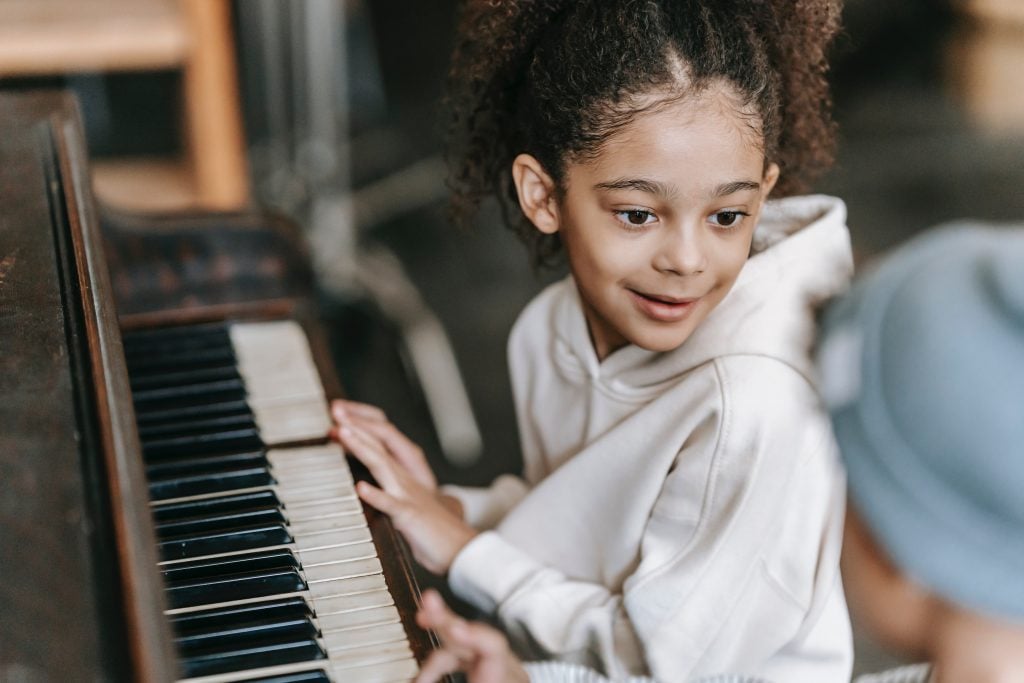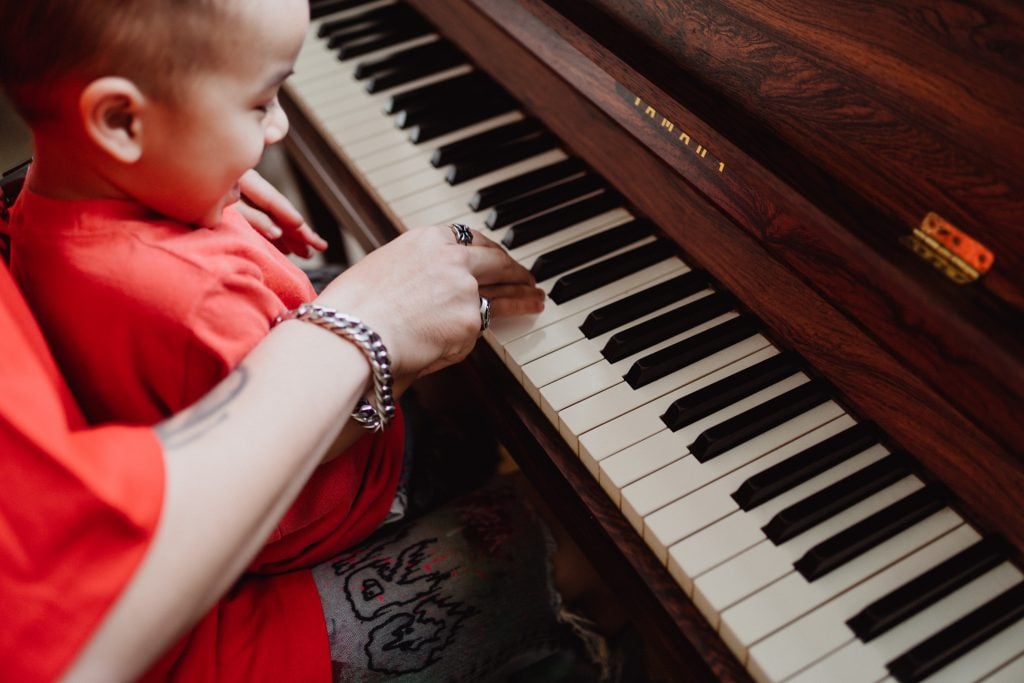Will Piano Lessons Change My Daughter’s Life?
Each year thousands of children begin music lessons for the first time. And thousands of parents wait with bated breath for their little caterpillars to transform into butterflies. Such is the potential of music, although things don’t always work out that way. This year, Alex Wibrew is one such parent. The CEO of Music Teachers UK, he’s spent his entire working life championing music education. On the eve of his eldest daughter’s very first piano lesson, we caught up with Alex to see how he was feeling.
For many years, Alex worked for his local music service. His job was to supply quality music lessons to local children. But it wasn’t always easy to convince teachers, parents and school leaders of the true impact music can have on a young life. “I had to advocate for what music can do,” he explains, describing the role. “Getting music to matter, getting music and the arts in front of a headteacher was a challenge.” So began a lifetime of promoting the wonders music can work.
It’s understandable, therefore, that Alex is suffering some anxiety about his daughter’s piano lessons. Time and again, he’s seen the positive effects of music. “But never through the lens of a parent,” he says. “You can’t really measure the day-to-day like you can with your own child. And she’s only 5, for goodness’ sake! Can I stay out of the way enough to let the music work without my hang-ups?” And worse still, what if the music simply doesn’t work?
Also read: Why Music is Vital for Your Child’s Development

Could Music Fail My Child?
Decades of research have shown that music can improve listening skills, coordination, self-expression, and so much more. But what if it doesn’t? What if little Johnny doesn’t want to play the cowbell? Or baby Maya is no good at the bassoon? What if all the tooth-shattering practice and lugging instruments to school are for nothing? According to renowned neuroscientist Nina Kraus, the results of music lessons can be affected by “small variations in music engagement”. That means your child has to be focused. And they have to enjoy music to reap the rewards.
Of course, Alex has always maintained that music is for everyone. No one should feel that it’s beyond them. Or that it’s not their thing. But as a parent, he’s having to confront a lurking doubt. “She’s not a fan of me playing the piano,” he admits. “I think she a) can spot a dodgy piano player. And b) she might think that music is my thing and not hers, somehow.” And that’s not the only pitfall. He also accepts that “she might not be physically ready for piano lessons. The fine motor skills come a little later so it will be baby steps.” But his biggest worry is one faced by every parent. Will he be able to support her music learning in the right way?
How Do I Support My Child Through Music Lessons?
How best to support a child’s musical development is a hot topic. It could take you a long time to resurface from a google deep dive into the best approach. ABRSM list ten points on its website. The BBC have five. The bluntly named takelessons.com boasts a list of 13. Common suggestions include finding the right practice space, regular contact with the teacher, and choosing the right instrument. It could help to keep track of what they’re supposed to be learning. And to encourage regular practice. But Alex is also determined not to become a pushy parent.
Having taught music to plenty of children, he’s keenly aware that this is going to require a different skill set. “This is my first time as a parent and I’m terrified. There’s no PGCE for being a supportive musical parent. Will I be able to find the right balance? Will I be able to support but still leave the space required?” More than anything, he says, “I’m hoping the lessons give her some ownership of music.” He wants music to be something they can enjoy together. And that may ultimately mean taking a step back.

Conclusion
Piano lessons can change your child’s life. Learning an instrument has the potential to boost a wide range of key skills. As Alex puts it, “There’s been lots of validation throughout my time as a teacher. The emergence of self-awareness and self-confidence. The resilience. The creativity.” Whether a child takes to music and realises these benefits may depend. But for his own daughter, Alex hopes as much as anything “that she enjoys it and has fun.” And that’s as good a place as any to begin.
https://gb.abrsm.org/en/inspire/support/how-to-support-your-child-s-practice-at-home/
https://www.theschoolrun.com/how-support-your-child-learning-instrument
https://petersonfamilyfoundation.org/music-therapy/10-benefits-children-learning-musical-instrument/
https://takelessons.com/blog/motivate-your-child-to-practice-music-z15
https://journals.sagepub.com/doi/10.1177/0255761410370658
https://www.bbc.co.uk/teach/bring-the-noise/five-ways-to-spark-childrens-interest-in-music/zb878xs
https://takelessons.com/blog/2012/02/supporting-your-child-in-music-a-parents-guide
